Religious Policy
Education in a Holy Cross School
The distinctive religious character
Description of a Catholic School
1.1 A Catholic School is a school community, recognized by the local Bishop, which through its general programme of education, and especially its Religious Education classes and religious practices, exercises the right to live and learn the values of Jesus Christ, as upheld by the Catholic Church. Such a school provides this value-based education for the Catholic community as well as for those from the wider community who seek an education in harmony with the aims of the school.
1.2 The Catholic school aims:
(1) to provide a challenging education environment which integrates faith and culture;
(2) to give witness to social concern and care for others.
1.3 The Catholic school achieves this through:
(1) promoting Catholic perspective of human life;
(2) a holistic approach to life;
(3) nurturing religious and moral formation;
(4) the dedication of the principal and staff to practicing and promoting moral values and to a high standard of teaching and learning.
1.4 The Catholic school strives towards:
(1) the excellence of education, with outcomes embracing the total formation of each individual, and involving a passion for the ministry of education;
(2) preparing learners to take their place in society as responsible citizens;
(3) respect for the uniqueness of every person and for the integrity of creation;
(4) a critical communication of culture, guided by a Christian concept of life centered on Jesus Christ whose life and teaching provides the model;
(5) transmission of values for life through the integration of faith and culture, and culture and life;
(6) nurturing of the faith of all members of the school community, recognizing that each is at his or her own stage of faith development;
(7) encouraging and practicing openness and dialogue between the various faith communities as a means of both education and spiritual formation and development;
(8) affirming and respecting the different religious identities, backgrounds and traditions of learners;
(9) serving both the Catholic and wider community with a concern for all people, especially the poor and marginalized, and for the spiritual and moral development of every individual;
(10) working in partnership with parents - the primary educators of their children - the local Church, the wider community for the benefit of the community it serves and of society itself;
(11) being a model of Christian freedom, justice and love in its administration, teaching and relationships between educators, governing body, learners, parents and community.
Religious Policy
Recognizing our call to participate in the Catholic Church's mission to share the gospel of Jesus, we, the staff, learners and parents of Holy Cross Primary School Aliwal North, acknowledge our responsibility to provide an environment in which this Gospel is lived out and experienced. This includes:
- Maintaining and fostering the Catholic Ethos and faith environment of the whole school.
- Nurturing the faith of all those in the school community.
- Being responsive to the changing needs and programmes of the local Church, Catholic schools and education.
- Addressing the human and environmental rights and responsibilities as outlined in the South African Constitution by developing skills, knowledge, values and attitudes that empower learners to make informed decisions to take appropriate actions in their parishes and communities.
- Highlighting the significance of other religious traditions without compromising the Catholic identity of the school.
- Fostering regular evaluation which ensures RE the respect that it deserves in the School Curriculum.
Popular Devotions
"Popular devotions of the Christian People are warmly commended ..." (VAT II, SC13)
"The religious sense of the Christian People has always found expression in the various forms of piety such as visits to sanctuaries, pilgrimages, processions, the stations of the cross, the rosary, religious dances, medals ..."
"These expressions of piety extends the liturgical life of the Church, but do not replace it." (The Catechism of the Catholic Church 1674 ff.)
- The Angelus
The ANGELUS-PRAYER reminds us of the dramatic event when Jesus became a human being in the womb of Mary.
"Angelus" means "messenger" or "angel".
It is a Catholic custom the ring the "Angelus Bell" at morning, noon and in the evening.
The Angelus sums up the whole mystery of our salvation
- The angel announces the coming of our Saviour, Jesus.
- Mary believes and surrenders herself to the will of God.
- Jesus, the Son of God, became flesh among us.
The Angelus reminds us of our Christian Calling
- God calls us in many different ways: through His Word in Scripture; through people who love us; through daily events in our lives.
- We, too, should give ourselves to God as Mary did when she said: "I am the handmaid of the Lord..."
- We, too, should allow Christ to become "flesh"among us ...
- The Rosary.
In Fatima, Portugal, Mary appeared to three children, Lucia dos Santos, Francis & Jacinta Marto (aged 10, 9 and 7) on May 13, 1917 and then every 13th of the month until October. She asked the children to recite the rosary every day, to pray for peace and do penance.
- Visits to SANCTUARIES, PILGRIMAGES
Pilgrimage is an important part of spiritual life for many Christians. Christians see life itself as a journey, coming from God and returning to God. The pilgrim seeks to separate himself from the everyday concerns of the world and to spend time in the presence of God as he travels to a place of special meaning. People went on pilgrimage for many reasons - to do penance (say sorry to God), or because they were ill and wanted God to heal them, or to come closer to God.
Some well-known places Christians visit on pilgrimage:
- The Holy Land (Israel, Palestine), places where Jesus lived.
- Rome, Italy
- Altotting, Germany
- Knock, Ireland
- Fatima, Portugal
- Lourdes, France
Lourdes: 11 February 1858 (the year of the Dogma of the "Immaculate Conception") a young girl, Bernadette Soubirous, had a vision of Mary, calling to penance and prayer, asking that a chapel be erected there and that people come in processions to that place (Giving her name as: "I am the Immaculate Conception").
Our Grotto is a Lourdes Grotto, calling us to prayer ...
Lenten Corners 2024
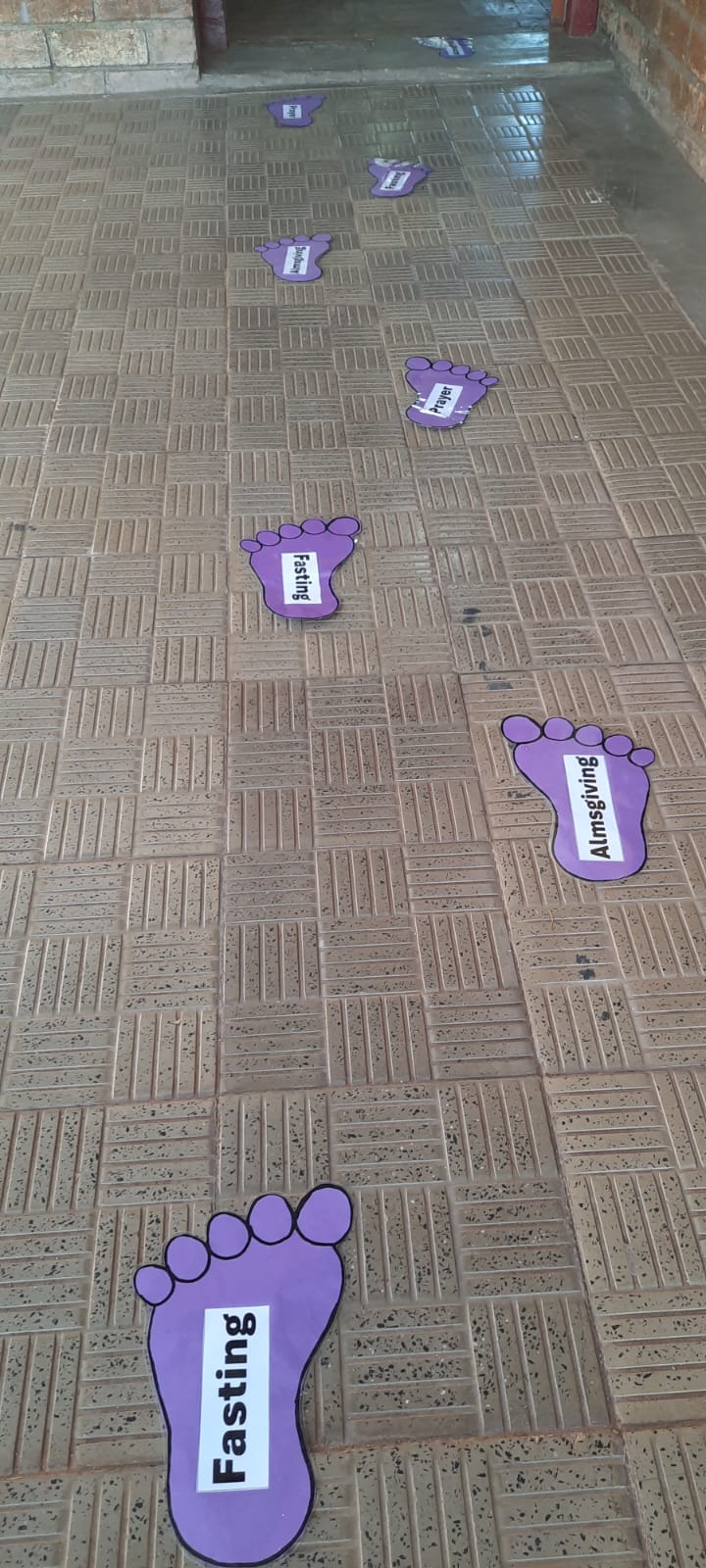
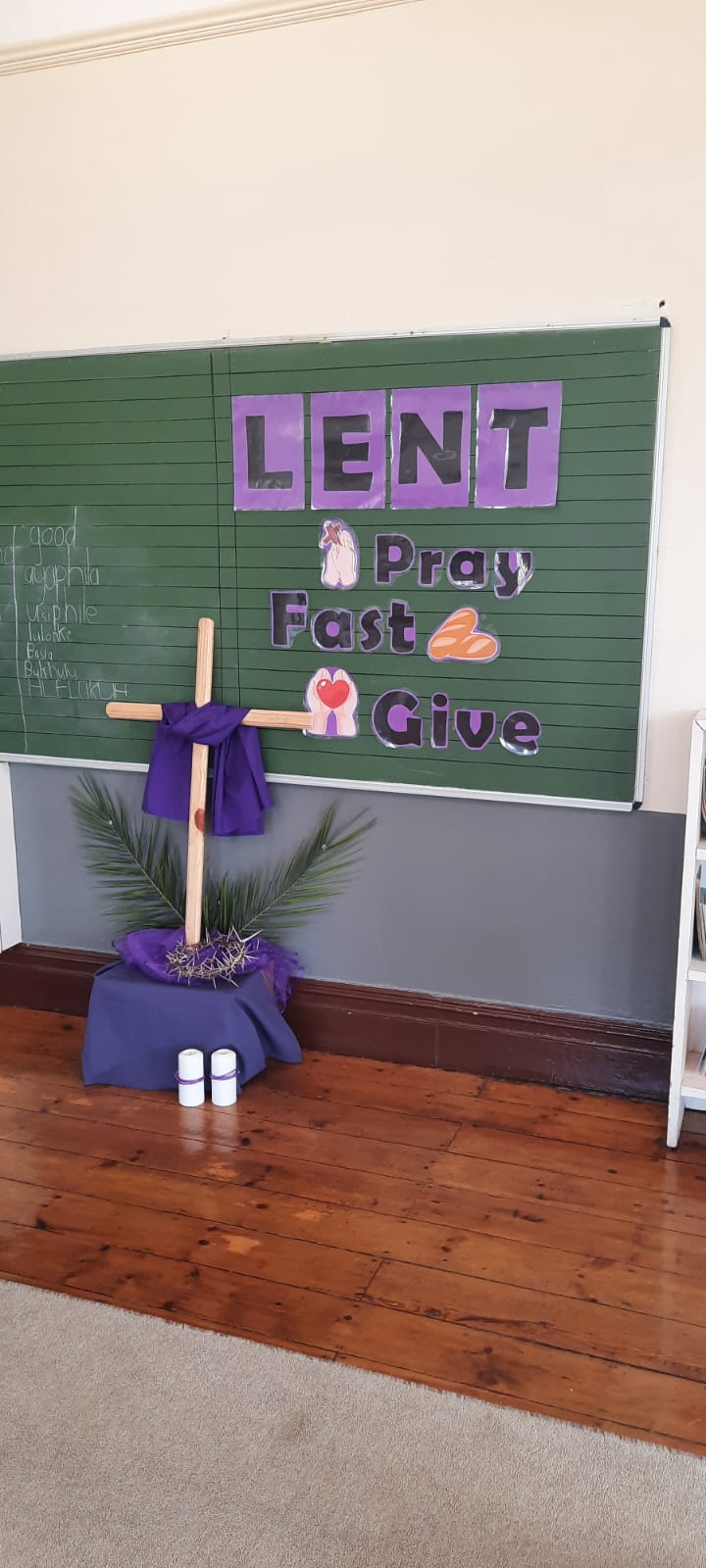
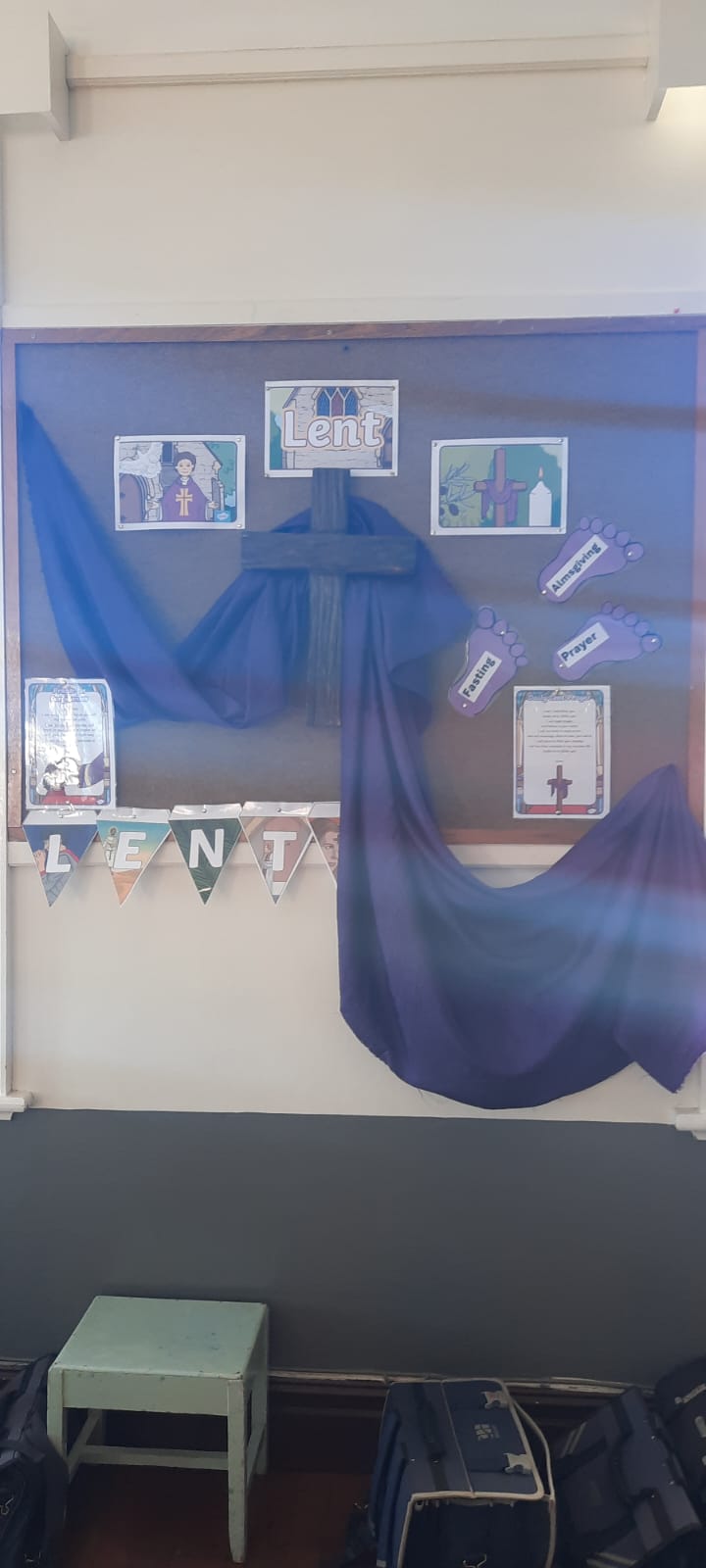
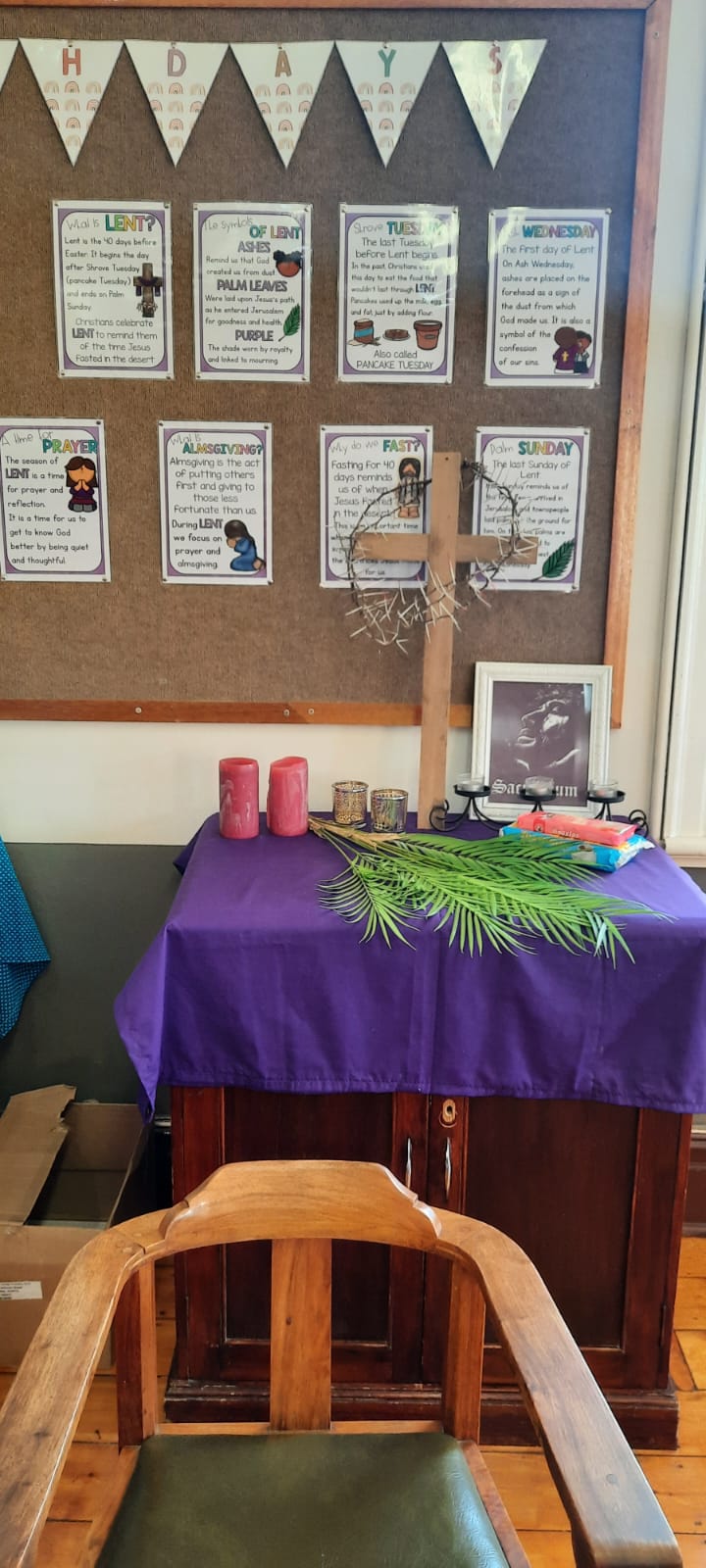
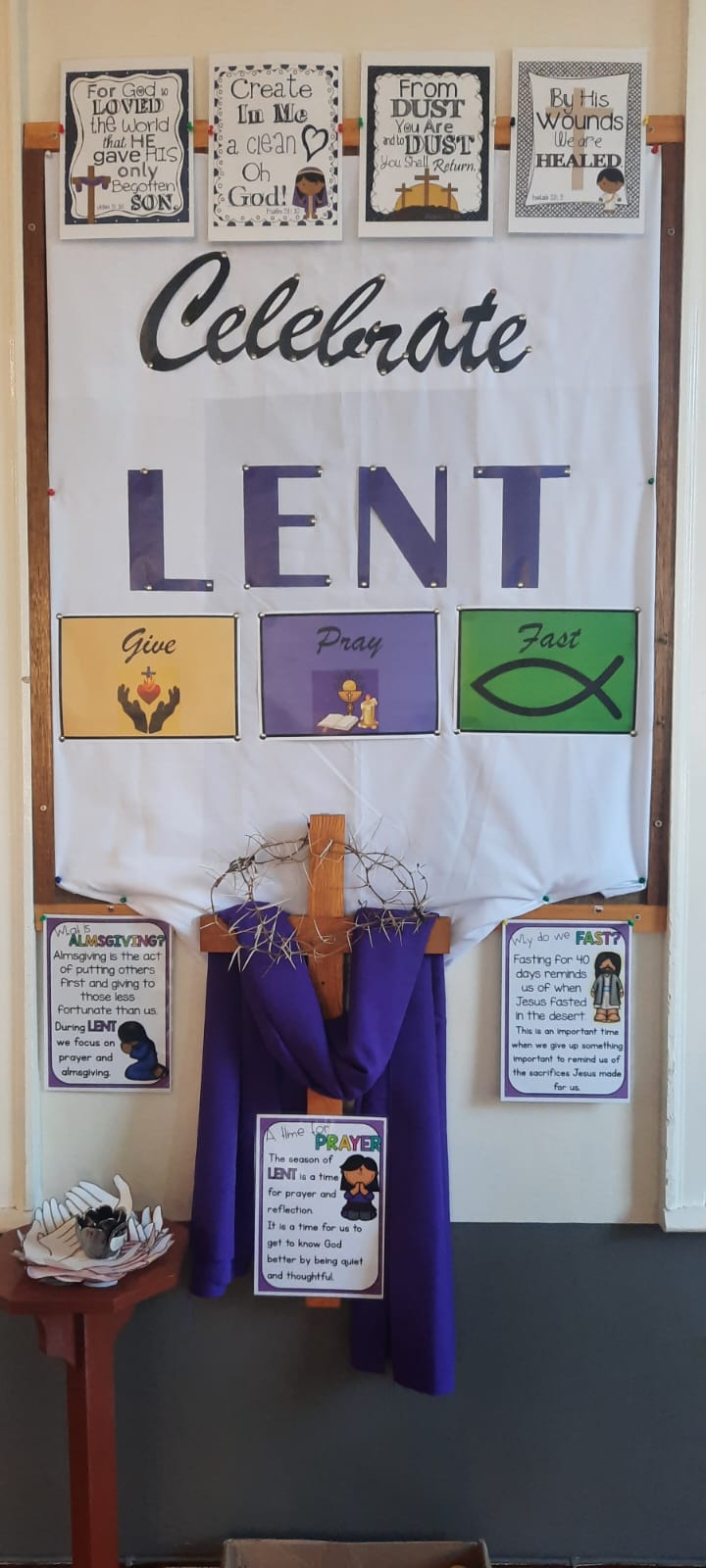

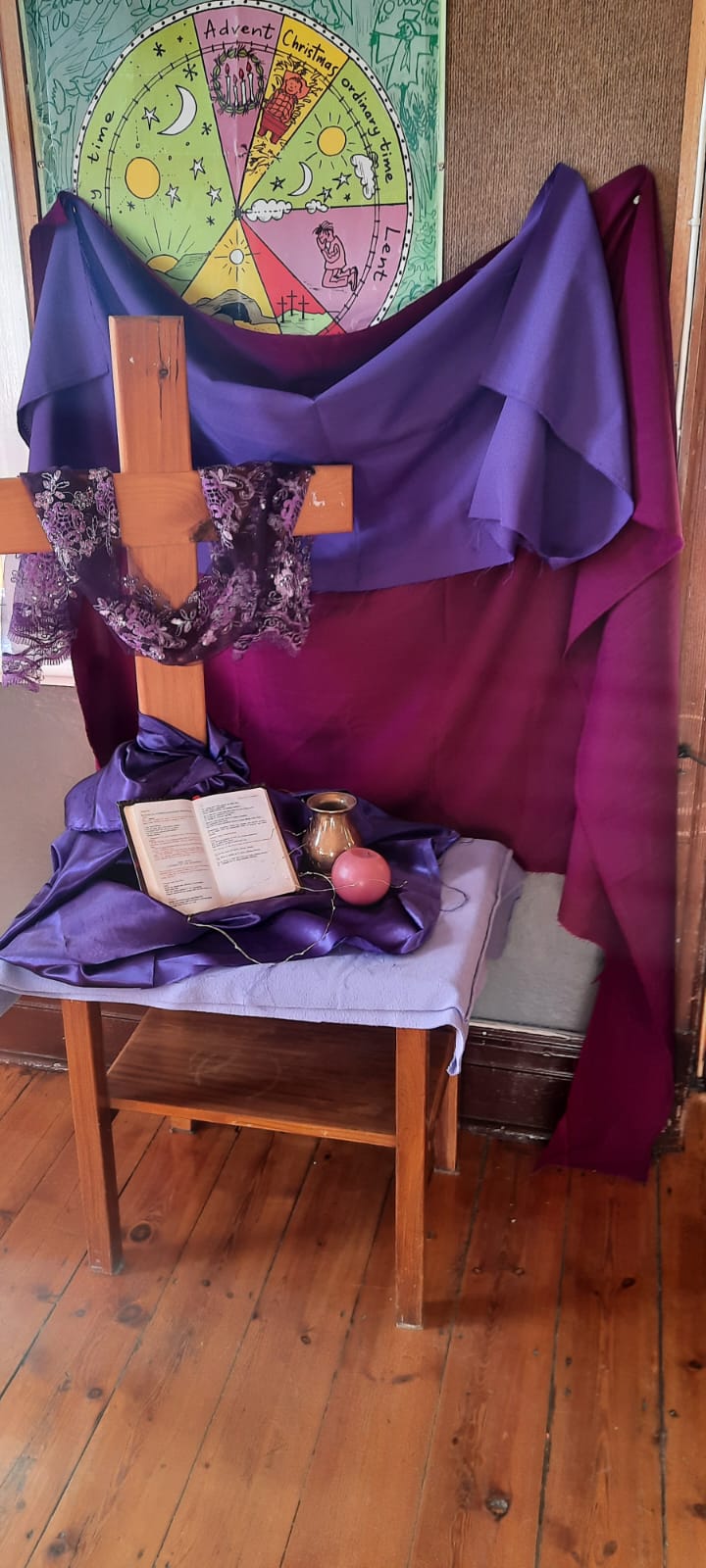
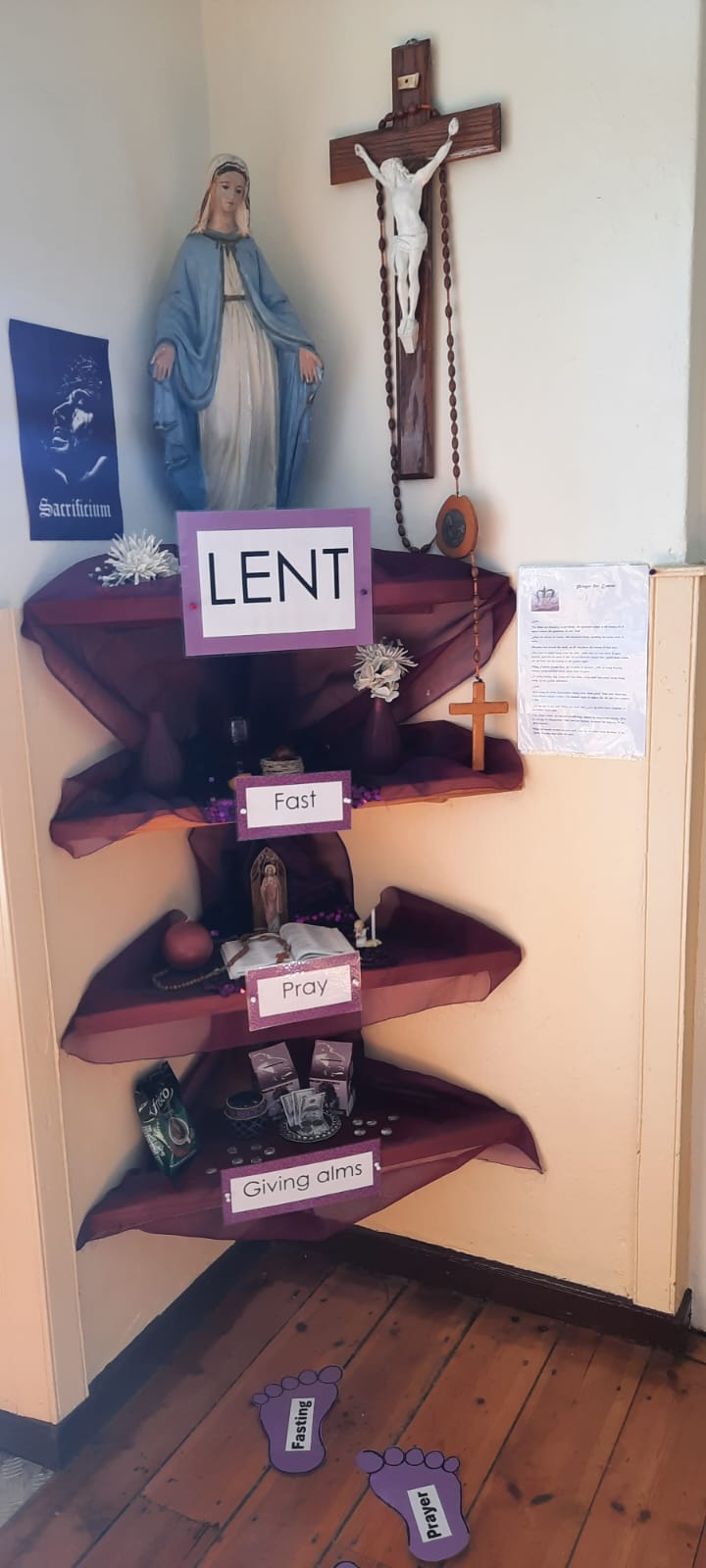
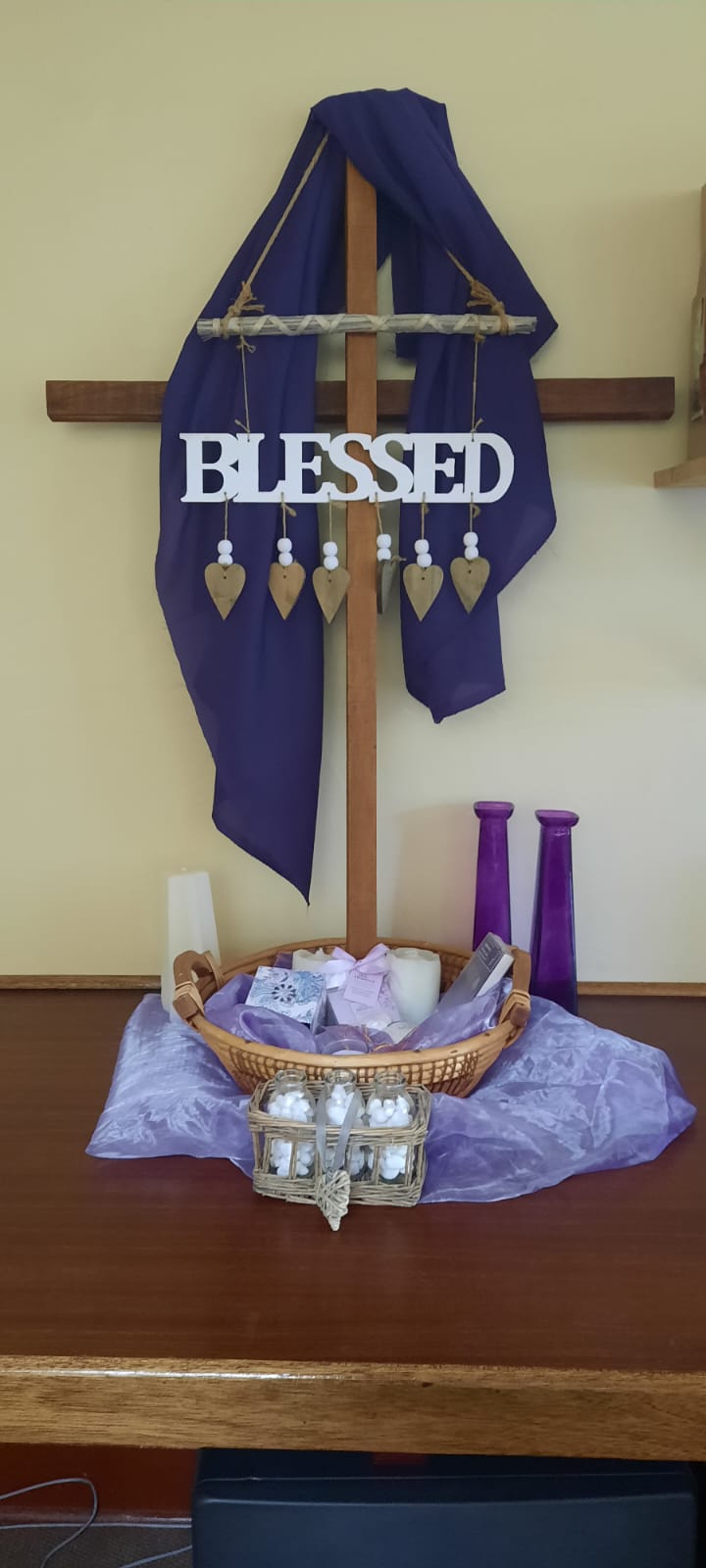

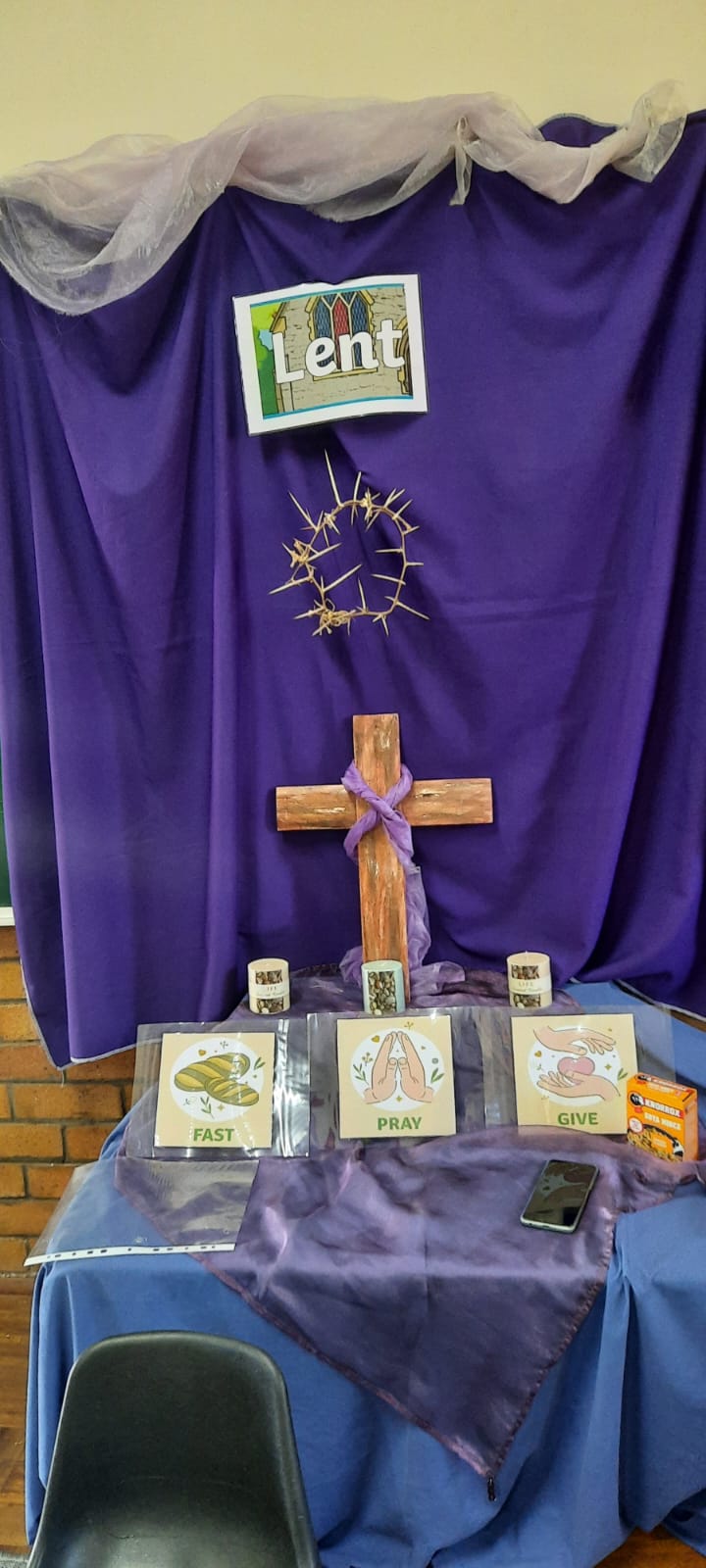
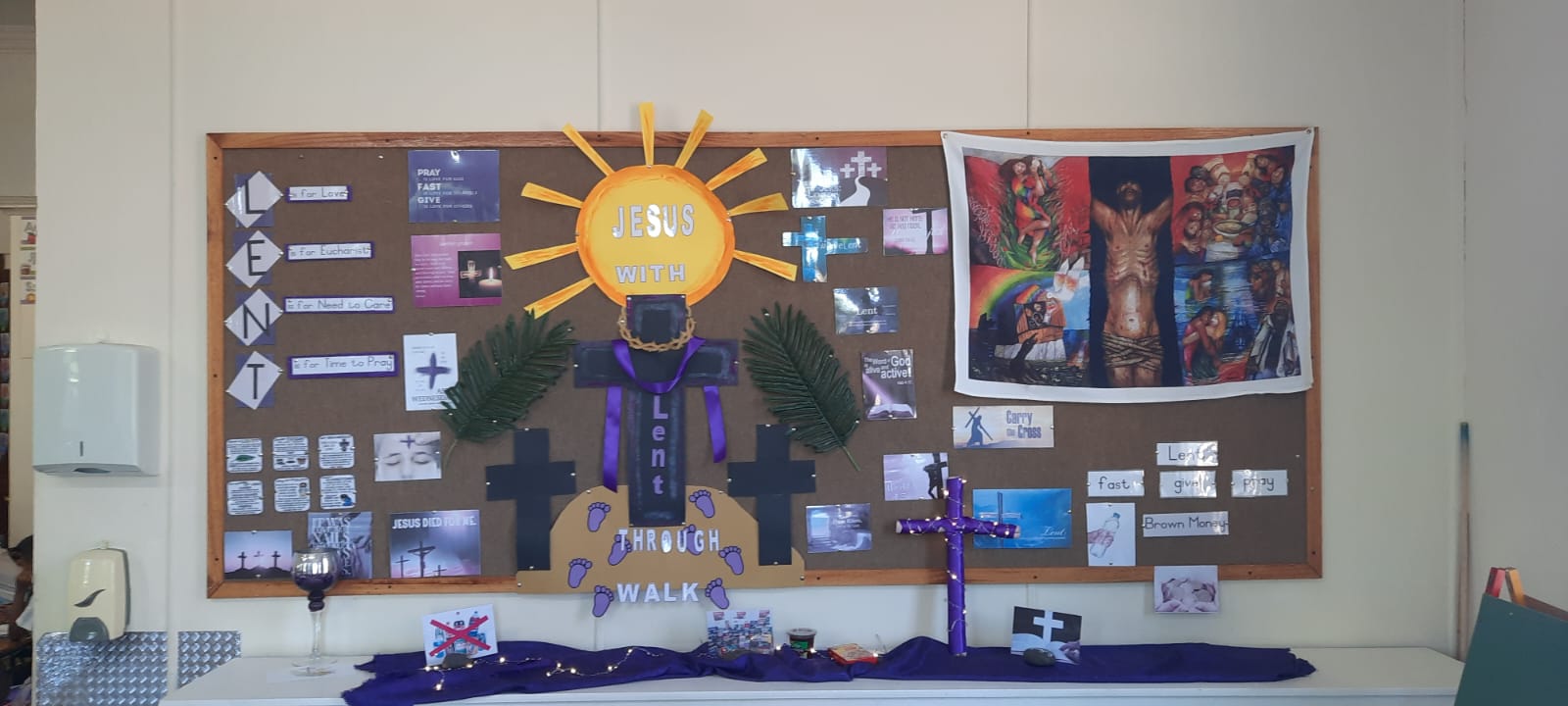
The Lenten corners not only enhance the aesthetic appeal of the classrooms but also serve as tangible reminders of the school's commitment to liturgical living and the Catholic ethos. They embody the values of faith, humility, and compassion that underpin the school community, fostering a sense of unity and purpose amongst students and staff alike.
Throughout Lent, Holy Cross Primary School resonates with a palpable sense of tranquility and introspection. The usual hustle and bustle give way to moments of stillness and solemnity as students engage in acts of prayer, self-denial, and charitable giving. The Lenten corners provide a physical manifestation of this spiritual journey, serving as sacred spaces where students can pause, reflect, and draw closer to God.
As the school community navigates through the season of Lent, the Lenten corners stand as silent witnesses to the transformative power of faith and the enduring values of the Catholic tradition. They remind us that Lent is not merely a time of deprivation, but a period of spiritual renewal and growth – a time to deepen our relationship with God and strengthen our commitment to living lives of compassion and service.
In the quietude of Holy Cross Primary School, amidst the purple-clad Lenten corners, echoes the timeless refrain of Lent – a call to prayer, fasting, and almsgiving, and a reminder of the profound significance of this sacred season in the life of the Catholic community.

